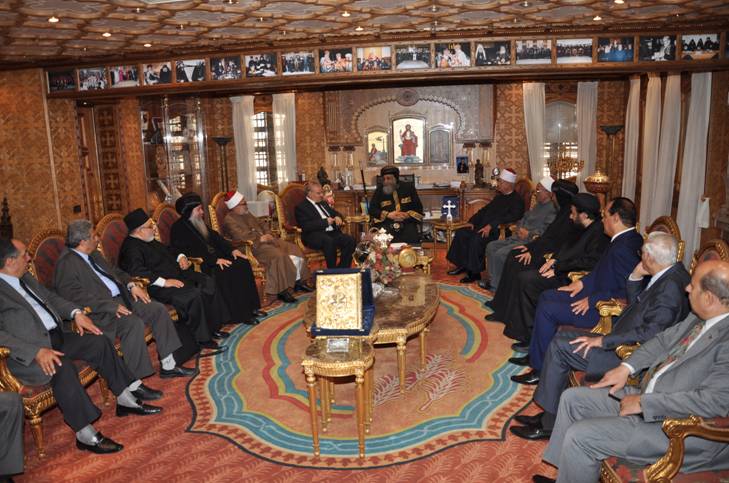There’s self-destructive poetry, which breaks the conventions of traditional poetry in the name of inspiration, and then there’s the destruction of poetry itself, that does neither.
Nafisa El-Sebai’s “Meditations in Rhyme is of the latter genre, the kind that wonders how deluded publishers were to grant her a book deal. Her collection of “rhyming prose, as she describes it, or in the words of Abdel Aziz-Hammouda, who penned the introduction – again, under what delusion who knows – “poetry, and good poetry too, can be summed up in two words: childish and trite.
I hasten to add that it’s dangerous as well. El-Sebai is a veritable hazard to the integrity of modern poets everywhere, and in publishing her “work, her publisher becomes responsible for the degradation of English-language poetry in Egypt.
There is no skill, no inspiration needed to throw a few free-floating notions on the superficiality of the Egyptian high-life and world poverty into cheap rhymes; a seven-year-old could write it.
The collection is a roundup of all the simple rhyming words in the English language -some characterized not by their internal structure, but from their passive participle forms (i.e. infected, connected). For example’s sake, here are a few “tasters of El-Sebai’s meditations.
“Resulted degradationA cheap imitationOf the right deniedA wrong will that defiedIts own creationIt lived in separation
It sounds a bit like a bad rap song, its meaning intentionally obscured to hide its absolute impecunious worth. If the reading classes are fooled into believing that this collection of utter tripe has any literary worth, it will resemble a case of “the emperors’ new clothes. For those who aren’t familiar with the story, he was a king who was tricked by some itinerant tailors into buying some choice silk apparel – so choice, it was literally thin air.
On the basis that “those who couldn’t see the fabric were stupid , he paraded through the streets allowing his citizens the chance to admire his garments, all stifling their giggles in case of looking “stupid . It was only when a small boy cried out, “Look, the Emperor’s in the buff, that the truth was made apparent.
El-Sebai – daughter of late, great Egyptian novelist Yousef El-Sebai (“Rod Qalby, “Ard Al-Nifaq ) – does, truly, offer reasons why her “meditations should not be read as poetry.
“It lacks imagery, connotations, paradoxes, ambiguities. It also lacks skill, inspiration, ability to tease out meaning, use motifs, symbolism, allusion, in short, all aspects that do not only make decent poetry, but decent prose too.
“In a craze, in a dazeYou accept your fateYou’re a fool my dear mate
I hope these few lines, quotes from El-Sebai’s “Son of Eve, illustrate my point.
“Meditations, the chosen title, acts as a kind of disclaimer, giving a license to devastate all sense of artistic merit for the sake of the very superficial emotion, marked by pieces falling under “The 60’s of the 20th Century and those of “The late 90’s of the 20th Century.
There’s a vague difference in subject matter, with poems of the 60’s mentioning topical issues such as the Palestinian cause, Kennedy’s assassination and such rhetorical jaunts as “Africa, what happened there? , while the late 90’s refers to the millennium and Prince Charles’s divorce.
“The Prince of Wales , which conforms to El-Sebai’s monotony-ridden a-b rhyme scheme, is a facile sweep of the prince’s relationship with Camilla.
El-Sebai makes a few moral pointers to his affair, “all he wanted was a wife, a mistress and an heir/natural rights for which all men care, and we can only guess she is being ironic, as a few poems later we find a “meditation dedicated to the “naïve late Princess Diana.
Abdel-Aziz Hammouda, in his positively creamy reception to El-Sebai’s poetic exhibition, counts for the poet’s inconsistency in rhyme by pointing to the fact that she is not “professional , calling her “so natural that she wastes no time looking for a scheme to go with pre-conceived theoretical poetic formula.
There’s no such thing as a “professional poet , but there is such a thing as “natural talent , or even “talent acquired through reading, formulating and thinking.
Would Keats or Rimbaud, who obviously have “wasted their time on looking for rhyme schemes that earned them a place in the literary canon, be called “professional poets ? Whether the great Arab poets such as Abu-Nuwas went to poetry college, I can’t say, but I doubt they found their inspiration in front of a blackboard.
As for rhyme, archaic rhyming schemes, if formulated with panache, were once the symbol of a great poet. In a less aesthetic and more frank society, the idea and its expression is given weight, and free verse, sometimes slipping into prose, has come to the fore. Why, therefore, El-Sebai has chosen to render her meditations into banal rhyming couplets when it only holds her hostage to a limited capacity in expressing her ideas is a mystery.


